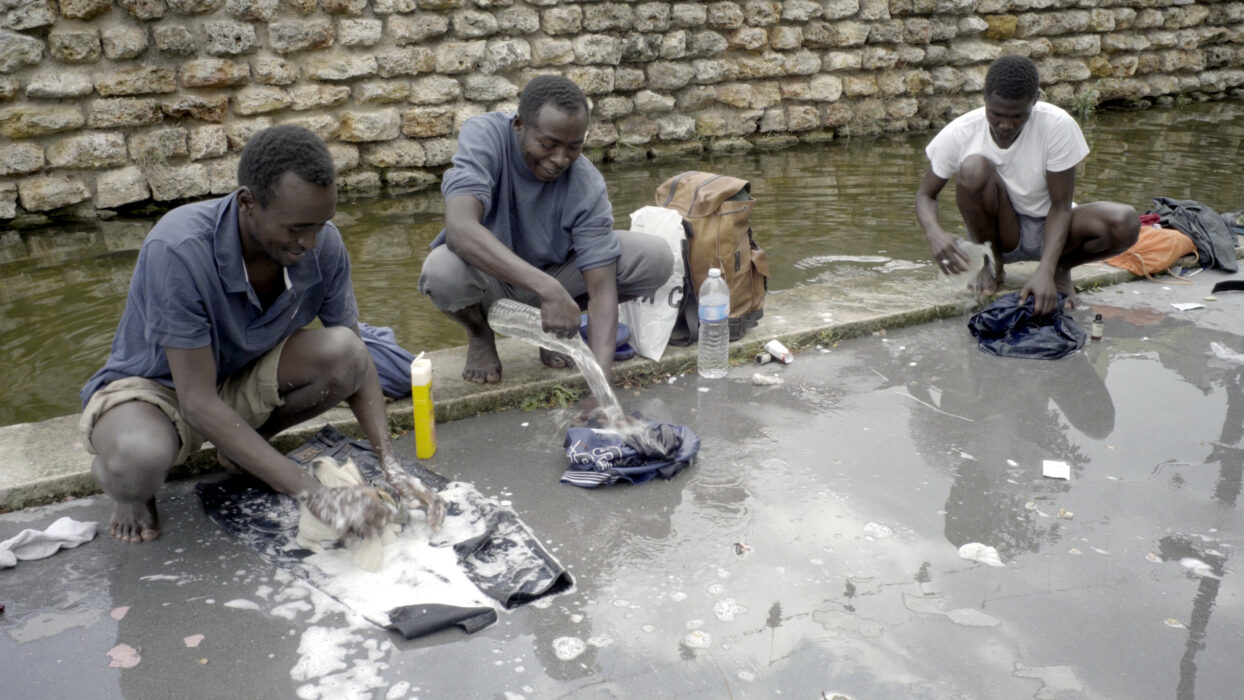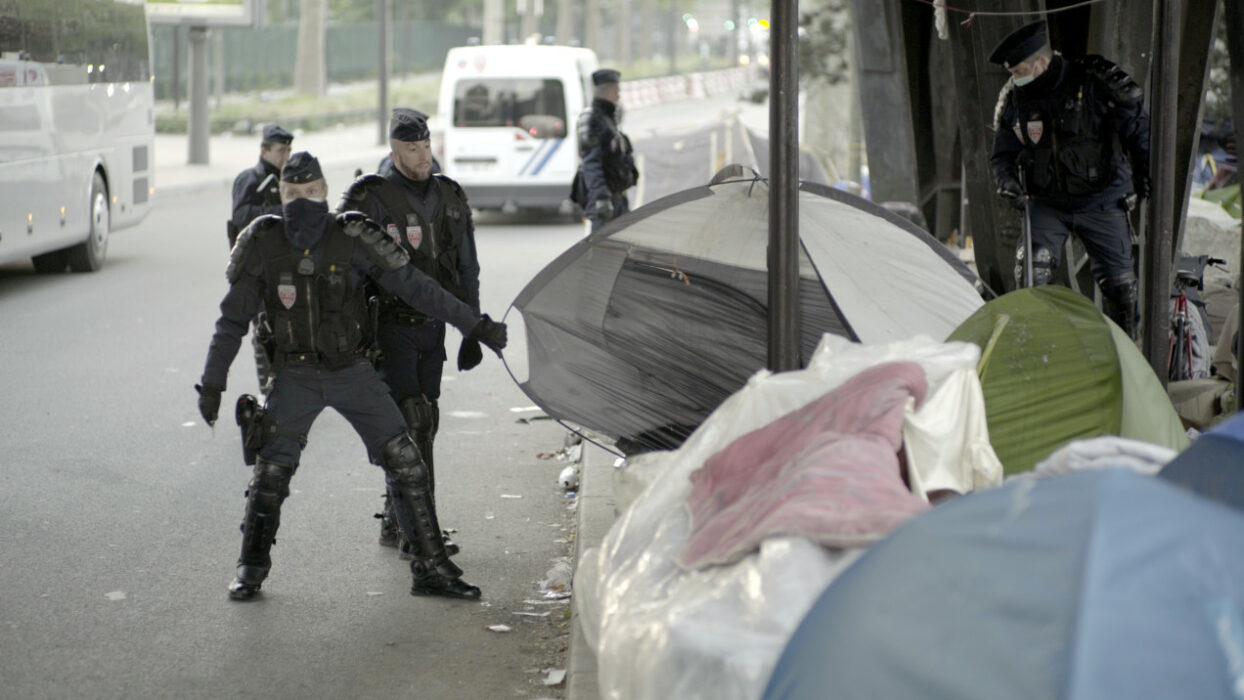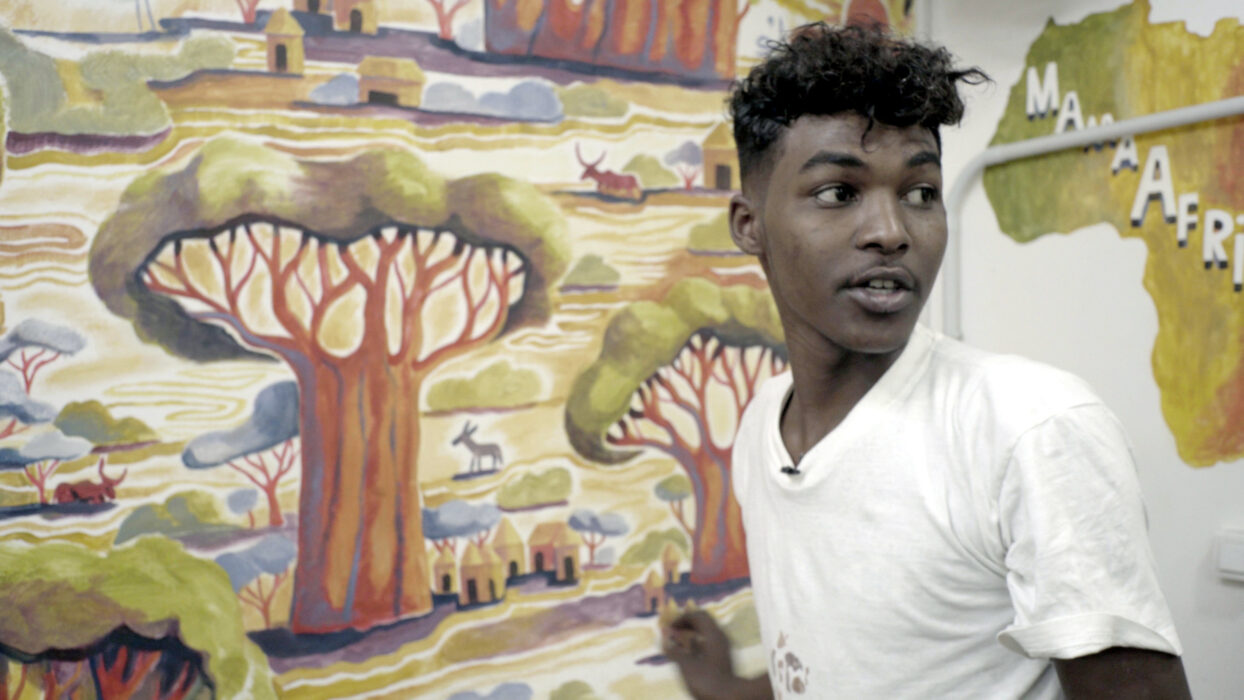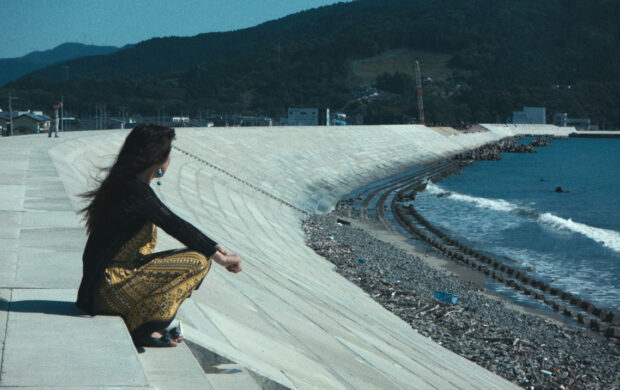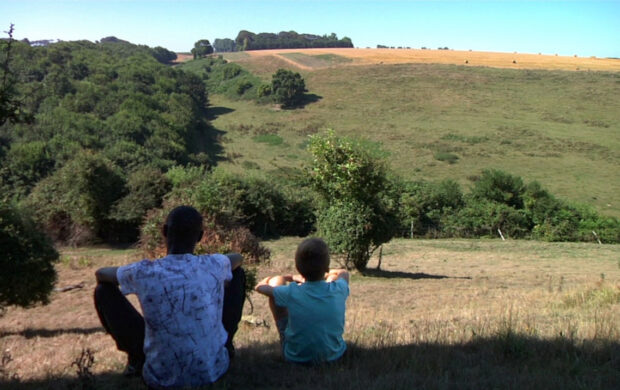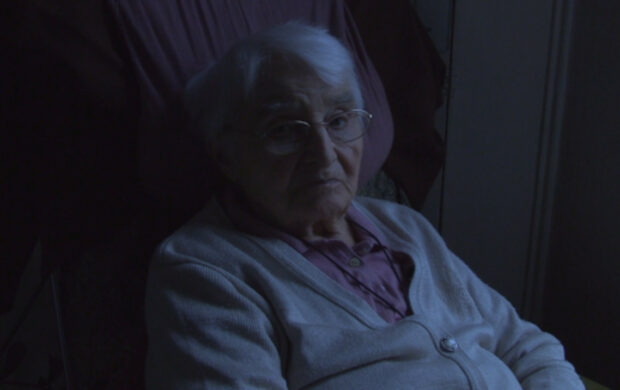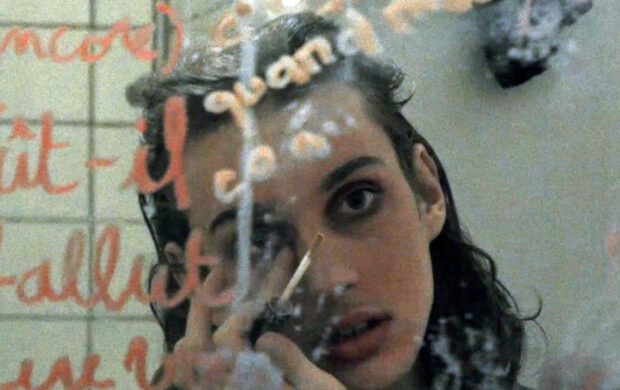Paris Stalingrad
- 2019
- France
- 88 minutes
- Arabic; French; English
Summer 2016, Paris, refugees are camping in the Stalingrad district while waiting to regularise their situation. Like many others, Hind Meddeb and Thim Naccache are there as support people, as neighbours, and film the daily life and geography of Stalingrad, a frontier-space in the heart of Paris. A physical labyrinth added to the bureaucratic labyrinth already in place – the city turns away. Controls, round-ups, evacuations, fencing. How to make room, be collective. How can you live in a space that prevents you from existing? The film maps out the ordeal: water points, dark corners, isolated parks, pingpong tables to cook on. Just next to the tennis courts, the refugees take a rest while the players continue training, and awake as nearby joggers exercise. It is difficult for the bodies integrate but a collective emerges and a coexistence settles in. From out of the group, we hear the voice of Souleymane, a young refugee from Darfour whose poems mingle with the filmmaker’s voice-over. Souleymane walks around, wanders off, gets lost, re-appears and talks. As the film tracks the itineraries in Paris, another journey takes shape: fragmented stories evoke Libya, Vintimille, Calais. Echoes of a shared journey, whereas Paris repels and divides. From Stalingrad to La Chapelle, from the Jardins d’Eole to the city ring-roads, bodies end up isolated on the city outskirts. Souleymane leaves the group, the camera follows him, a solitary escape. The collective breaks up, disappears from the frame, but the film exists as the memory of a place, Stalingrad, where it was a matter of surviving together.
Clémence Arrivé
- Production : Sylvie Brenet
- Photography : Thim Naccache, Hind Meddeb
- Sound : Damien Tronchot
- Editing : Sophie Pouleau
- Print contact : Les Films du Sillage, sylvie.b@lesfilmsdusillage.fr
